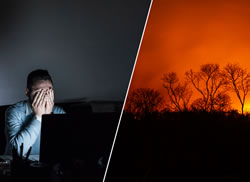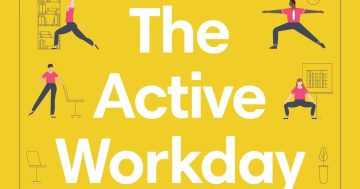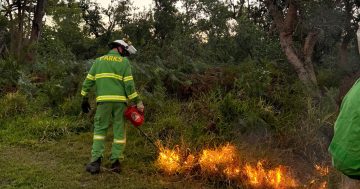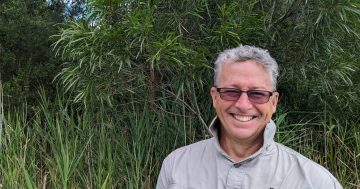Arianna Huffington* says if our leaders in politics, business and the media are suffering burnout, they will not make the decisions that will stop the burning of the planet.
 In the past few years, two major issues have moved to the centre of our collective conversation.
In the past few years, two major issues have moved to the centre of our collective conversation.
One is climate change, and the other is wellbeing and mental resilience.
It’s time we connect the dots and bring the two conversations together.
They’re not just both existential threats, they’re also deeply connected.
Simply put, burned out people are going to continue burning up the planet.
It’s clear that the way we live and work is not only burning us out, but causing us to make decisions that are destroying our own health and the health of our planet.
The scale of this crisis is staggering: First, the health of the planet.
The past seven years have been the hottest on record.
Last year saw the most named storms in the Atlantic ever and was the worst California wildfire season ever, as was each of the previous 10 years before that.
Then there’s the destruction that’s been wrought on our individual and collective health — including our mental health, which was already in crisis by the time the pandemic arrived.
An estimated 90 per cent of United States healthcare spending goes toward treating mental health conditions or stress-related chronic conditions that can be managed or prevented, like heart disease and diabetes.
The connection between what we’re doing to ourselves and what we’re doing to our planet isn’t metaphorical.
We know the science on climate change. The consequences of what will happen if we don’t change how we live are dire.
So if we know the science, why aren’t we acting? Because it’s hard to break out of habit and embrace any new ideas and ways of living when we’re burned out.
We need to acknowledge both the science of how the planet works and the science of how humans work.
We’re not just ignoring the science of climate change; we’re ignoring the science of how we make decisions when we’re burned out.
When we’re burned out, exhausted and depleted, we operate on short-termism and day-to-day survival, just trying to get through the day, or even just the next hour.
We’re not just less able to create new and more sustainable habits, we’re also unable to think about the future and make the wisest decisions for the long term
We’re much less likely to spot the iceberg before it hits the Titanic.
Dealing with the realities of climate change is going to require a culture shift, but not one based only on how we burn fossil fuels.
It’s also going to require a shift in how we burn energy as individuals.
The solution is renewable energy at every level.
That’s why achieving a sustainable planet must go hand-in-hand with living sustainable lives.
The prefrontal cortex is the region of the brain that governs higher-order cognition and decision-making.
It’s what allows us to plan and organise for the future, regulate our emotions, be flexible in response to change and make long-term decisions.
However as neuroscientist, Amy Arnsten explains, the prefrontal cortex is taken ‘offline’ during stressful events, and our brain’s more primitive and reactive regions come to the forefront.
This can be helpful if we find ourselves suddenly being chased by a lion, but not in a situation which requires thoughtful evaluation and planning for survival.
Our health is also directly affected by our stewardship of the planet, and we can see this in the pandemic itself.
For years Dennis Carroll, one of the foremost experts on pandemics and zoonotic diseases, has been warning that continued human incursion into wildlife habitats is going to lead to more events like COVID-19.
He says just knowing the science isn’t enough if we don’t translate it into action.
“Your thoughts can be absolutely right on, but your practices can be completely divergent,” he says.
So why have so many of our leaders — in politics, business and the media — been making such terrible decisions when it comes to our planet?
Why are we addicted to short-termism and magical thinking, even as we know what that will mean for the planet and for us?
It’s not a lack of IQ or data. The problem is that we’re drowning in data but starved for wisdom.
To stop simply dealing with the increasingly costly, deadly and catastrophic downstream consequences of climate change, we need to go upstream where we can tackle the causes of burnout.
When we begin leading sustainable lives, we’ll have the foundation from which to build a sustainable planet.
Fortunately there are more and more leaders in business who get this.
The pandemic accelerated the realisation that the long-term health of every organisation is increasingly connected to the long-term health of their employees.
They realise that we can’t separate our health from the health of the planet.
Even if we don’t run companies, we can take action in our own individual lives — both for our own wellbeing and for the planet’s.
As Laurie David and Heather Reisman argue in their new book, Imagine It! A Handbook for a Happier Planet, that’s how culture shifts happen.
“Many people making individual changes ultimately leads to a collective will and inevitably business and Government action,” they write.
“Making small, everyday changes helps develop our overall mindset and ultimately results in shifting our attitudes on the big issues.”
Climate change is real. Burnout is real. We can fight both crises the same way: By committing to address our own burnout, which will give us the energy and the wisdom to address the burnout of the planet.
By leading sustainable lives we can create a sustainable planet.
*Arianna Huffington is the founder and Chief Executive of Thrive Global; the founder of The Huffington Post, and the author of 15 books, including, most recently, Thrive and The Sleep Revolution.
This article first appeared on LinkedIn.











